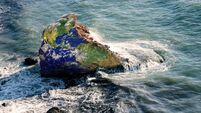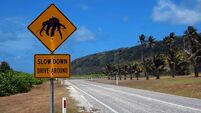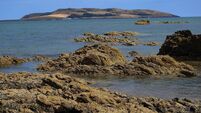One of the largest Irish animals is at imminent risk of further decline — new report

A Flapper skate fish is different from a sting ray because the skate does not have the stinging barb near its tail like a ray does. Source: wood engravings published in 1841
One of the largest Irish animals is also among the least known. The flapper skate is the largest skate in the world; a fully grown adult is well over two metres in length and has the flattened, diamond-shaped profile of a stealth bomber.
Tragically, this combination of size and lack of public awareness has been its undoing. Although it was never of great fisheries value, its size and shape meant it was caught as bycatch in every type of net.








![<p> The International Union for the Conservation of Nature says that “an ecosystem is collapsed when it is virtually certain that its defining biotic [living] or abiotic [non-living] features are lost from all occurrences, and the characteristic native biota are no longer sustained”.</p> <p> The International Union for the Conservation of Nature says that “an ecosystem is collapsed when it is virtually certain that its defining biotic [living] or abiotic [non-living] features are lost from all occurrences, and the characteristic native biota are no longer sustained”.</p>](/cms_media/module_img/9930/4965053_12_augmentedSearch_iStock-1405109268.jpg)